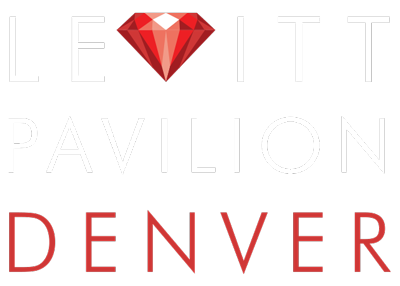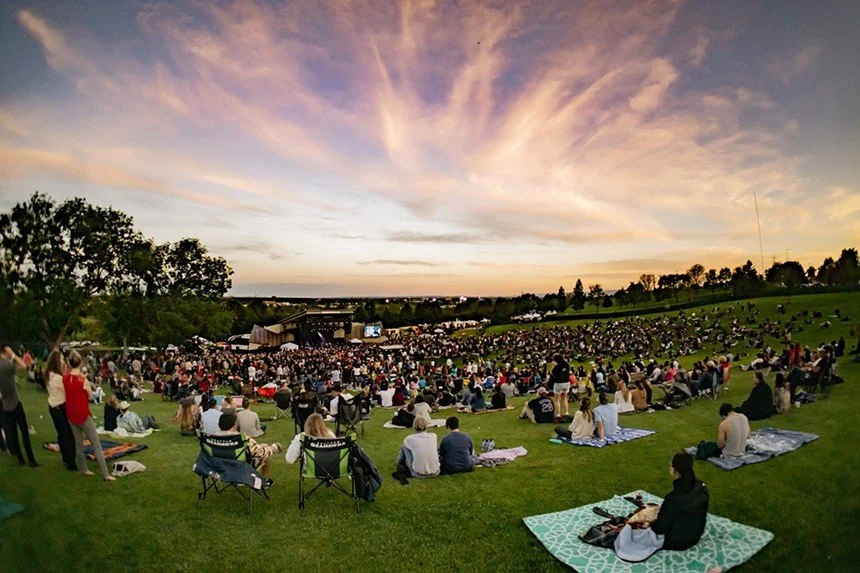Levitt Pavilion's Bodies of Culture Board Launches Mentorship Program for BIPOC Youth
Each participant gets to perform in a public showcase at Levitt Pavilion.
By Julianna O'Clair | February 8, 2024
Bodies of Culture team members during the Bodies of Culture Presents: Sunday Sounds event on September 3. Photo: Meghan McNamara
Back in the summer of 2021, USC Annenberg reported a harrowing statistic that there were more than seventeen white male executives for every Black female executive in the music industry. The report quickly made headlines; after all, it was only a year after nationwide civil rights protests sparked an examination of diversity, equity and inclusion practices that found many industries, including music, lacking.
Many companies promised to address inequity by building inclusive leadership and hiring underrepresented individuals. While some corporations didn't follow through, Levitt Pavilion took the 2020 nationwide call for increased diversity seriously. That year, the organization formed the Bodies of Culture (BOC) board, a group of nine BIPOC musicians dedicated to creating a more equitable future for young Denver musicians. Levitt "wanted to form a collective of diverse musicians that serve the community and really fill some gaps," Kayla Marque, a musician and BOC board member, told Westword in a previous interview.
Marque, now the board's director of programs and activations, has big plans for BOC. She's in the midst of test-running the board's first mentorship program, a project she's been refining since she became director in November, and one that represents BOC's ethos of uplifting local musicians.
The mentorship program is open to local BIPOC musicians, artists, producers and music industry professionals between the ages of eighteen and 25. Each participant is assigned to a BOC board member mentor, who will meet with them at least once a month for the duration of the six-month program. Each month has a theme designed to help mentees with goal setting, community building and professional development.
Participants will shadow their BOC mentors and create collaborative art or music that they can add to their portfolios. The BOC board will also hold public monthly gatherings in BIPOC-owned spaces where mentees can meet other professionals, expand their network and "heal and focus on wellness," Marque says, "or just play and have fun." Details about the gatherings are not yet solidified but will be announced via BOC's social media and newsletter.
Cementing key milestones, learning branding strategies and, of course, refining resumes and portfolios is also on the docket. But the cherry on top is Marque's version of a commencement ceremony: During month six, each participant gets to perform in a public showcase at Levitt Pavilion.
Levitt Pavilion opened in Ruby Hill Park six years ago. Photo: Joel Rekiel
Ideally, the program's impact will extend further than polished resumes, bolstered portfolios and a stack of business cards from local producers — Marque wants the mentorship program to be a haven for participants. "In the state of Colorado, it's sometimes hard to really feel like there is a safe space where my cultural identity is understood as well as celebrated," she reflects. "Creating a safe space for them to explore career pathways as well as their personalities as young people and having that guidance is very crucial during these years."
If there's anything Marque understands, it's existing as a person of color in Denver. She was born and raised in the city (a fact she's rightfully proud of) and has seen countless businesses open and close, skyscrapers rise and rent prices inflate. The multifaceted R&B, hip-hop and soul musician — she calls her genre "sparkly dark-ritual pop" — self-identifies as a product of the Mile High City's art scene; her work is influenced by Denver dance, photography, painting and fashion.
Marque has been a pro for fourteen years now, but when she was a budding musician in Capitol Hill, she didn't have a mentor. She also didn't know where to find one. "That's one of my reasons for starting something like this because I didn't have access to [a mentor]. It wasn't something that was even in my energetic field. I didn't get my first person who I really looked at as a mentor until the last two years," she says. "It's one of those things for me where it's been like, be the thing that you're seeking."
The application for the mentorship program closed on January 29 and the BOC board is currently finalizing participant details; orientation is on March 1. This year there will be nine mentees (one for each board member), but if all goes well, Marque hopes the number of slots will double for the second application round next February. "For this pilot program, I thought it was best to start small and kind of get our footing," she explains. "Work out any kinks that might come up."
The program will form a web of community, connection and resources. It's a step towards Marque's personal goal of getting back in touch with communal practices that transcend the hyper-individualistic constraints of the modern music industry and even capitalism itself.
"I'm definitely someone who believes in collaboration over competition," Marque says. "Leaning on each other and offering one another what we have, I think that's a more regenerative system than the capitalist society that is based in extraction."
With that extraction, "things are always going to run out and people are always going to be left alone and unfed and underserved," she adds. "So if we move back towards a more communal practice, everyone gets to eat."


